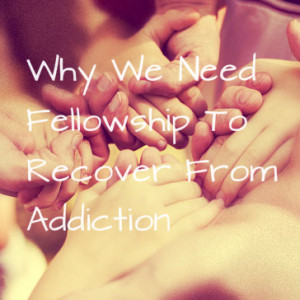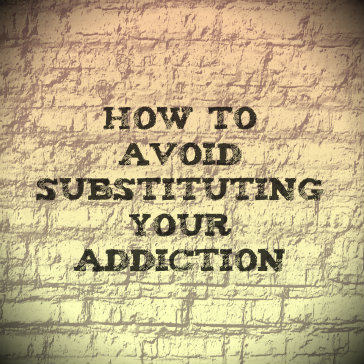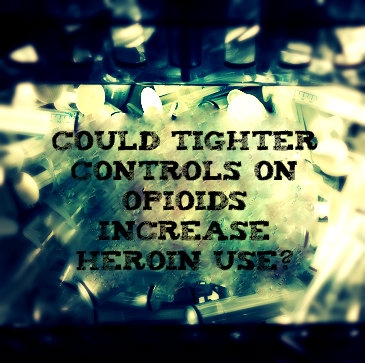Being in recovery from drug or alcohol addiction can be a wonderful thing. You are finally free of your burden, you have gone through treatment and you’re prepared to meet the rest of your life head-on. The only problem you have now is the possibility of relapse. Addiction is like any other chronic illness and relapsing is a very real possibility. There are things you can do, though, to strengthen your recovery and to make you more resistant to relapse. Consider volunteer work as one of those methods.
How Can Volunteering Help Me Avoid Relapse?
 One important way in which you can lessen your risk of relapsing is to fill your life with other things, not related to drugs and alcohol. This strategy can take many forms. For instance, eliminating old friends from your life, who still use, and making new, sober friends, can provide you with meaningful relationships that help you stay sober.
One important way in which you can lessen your risk of relapsing is to fill your life with other things, not related to drugs and alcohol. This strategy can take many forms. For instance, eliminating old friends from your life, who still use, and making new, sober friends, can provide you with meaningful relationships that help you stay sober.
Engaging in positive activities is another strategy for leaving no room in your life for drugs or alcohol. Such activities could include your work, going back to school, hobbies or volunteer work. Of all the activities you could choose, volunteering may be the most meaningful. The more meaningful and enriching the activity, the stronger it will make you and the more devoted you will be to it.
By volunteering your time and energy to help others, you take steps toward restoring your position within society. This can be a powerful way to improve your self-esteem and your sense of self-worth. When you feel better about yourself and that you are making important contributions to your community, and to the world in general, you will be more likely to resist the temptation to relapse.
What Volunteer Opportunities Can Keep Me Sober?
What you do for your volunteer work is up to you. Most people who volunteer find that they are more likely to stick with work that they feel passionate about. If you love animals, for instance, consider working at a shelter. If you feel strongly about poverty and children, volunteer for a charity that works with disadvantaged children in your community.
Another great option is to do volunteer work related to addiction. Now that you’re sober, you have a wealth of information and experience to share with others. You can offer up your knowledge to help with prevention programs in schools, or to work with addicts in homeless shelters who are trying to get clean. As a former addict you have plenty to offer and you can act as an example and an inspiration to others.
As you search for volunteer opportunities keep in mind that you should be open about your past, especially if you had legal problems associated with your addiction. Some organizations screen potential volunteers in a manner similar to hiring for jobs. Keep no secrets about your past and be open about how your recovery is going and that volunteer work is part your plan to stay sober and give back.
Volunteer work is a wonderful experience for anyone, but for an addict in recovery it can be especially powerful. By giving back you help to restore your image, your reputation, and your worth in your community. In doing so, you also will begin to slowly repair the way you feel about yourself, which is of the utmost importance.
Read More On How To Avoid Common Obstacles For Successful Addiction Treatment And Recovery
We’ve come through the early months or years of recovery and lived to tell the tale. We’ve made it through the 12 steps, done our inventories and amends, and we’re continuing to develop relationships in our 12-step fellowship. We’re growing in awareness of our character defects and beginning to learn what it means to be of service. Our relationships are improving. We’ve even started to find some joy and contentment. Things are looking up.
Not Letting Negativity Threaten Your Sobriety And Joy
 But for many of us who are accustomed to a “faster” life, we can’t help looking at our lives in addiction recovery and wondering: Is this all there is?
But for many of us who are accustomed to a “faster” life, we can’t help looking at our lives in addiction recovery and wondering: Is this all there is?
We might even be hesitant to express those thoughts out loud. Here we’ve been saved from the wreckage of our former days of addiction. We’ve been given the chance to live again. We’ve been freed from bondage. Who are we to complain that this is all just a little bit boring?
We may not want to say it outright, but we also know, as addicts, that the secrets and dissatisfactions we harbor have the potential to become slips and other serious threats to our sobriety. If we want to avoid a relapse, we have no choice but to be as honest as we can be. We can’t let our feelings fester.
Getting Over Believing That Your “Highs” Were Actual Highlights In Your Life
So let’s start there. Look at your day-to-day life now. You probably have calls to your sponsor, coffee dates with fellow 12-step members, your schedule of meetings, going to work, taking care of responsibilities around the house, spending time with family, paying bills, running errands, etc. You may recognize that all of these are good things and they are safe and respectable. But they lack a lot of the thrill and appeal and adventure of the former days when you often didn’t know where you would wake up on any given morning, following any and all manner of escapades the night before.
As addicts, we craved excitement in our lives and we sought it in the practice of our addiction. Through trying to keep up with the fast life, in getting high and by involving ourselves in a lot of drama, we worked to convince ourselves that our lives were pretty interesting and adventuresome. Every day could be a holiday if we could get high.
And now that we are recovering, we acknowledge that we still crave a little adrenaline. This is not a bad thing; it is a normal human thing. What we must do is not simply accept that our lives in sobriety are consigned to the dull day-to-day grind into eternity, but that we are humans who like excitement.
The answer is not to accept boredom but to begin expanding how we think about excitement. As addicts, quite honestly, we were a little lazy. Naturally, getting high provided a thrill, but it was a cheap one.
Seeking New Adventures And Positivity In Sobriety
Seek new adventure. There is nothing wrong with being a thrill-seeker, and once you’ve cleaned up the messes of the many “thrills” you experienced as an addict, you may find yourself getting a little antsy. Adventure and thrill is a good thing — it only becomes a bad thing when we seek it in the wrong places. Start seeking it in the right places. Travel, climb mountains, try new sports, meet new people—plan your own adventure. The world is full of rushes and thrills beyond what we could ever find in a bar or a bottle. Looking for real adventures and genuine thrills? Go out and find them!
Be grateful. Much of our mood and how we feel about our lot in life are products of our attitudes and perceptions. Yes, we understand that things just aren’t as fun as in the former days. But is there anything you might be forgetting? What about the fear? The hopelessness? The depression and the drama that have so magically disappeared from your life? Gratitude that we are no longer running from the law, fighting to hold a job, losing relationships and feeling our sanity slip away can help us to reframe the way we see our current situation. Yes, we may have had fun drinking ourselves into oblivion, but can we acknowledge that it wasn’t all excitement and adventure and that there are some very real benefits that come from the sober life?
Embrace real life. We must also come to simply accept that every day can’t be a holiday. That was our addict misperception. Our expectation was that everything should be fun, exciting, comfortable and exhilarating—we weren’t interested in anything that didn’t give up that thrill. Here’s the reality: life isn’t always fun and we all have to do tedious, boring things. Pain, discomfort and getting up and going to work every day are just the simple facts of life. As addicts we couldn’t deal with that. In recovery we must start to accept it, and even embrace the simple joys and contentment that the sober life brings.
Read More About Addiction Recovery Tips!
Addiction is a chronic disease that requires treatment for a lifetime. Unlike some chronic physical diseases, treatment for addiction is not as simple as taking a medication. Recovery from addiction requires a combination of therapy, support, willpower and lifestyle changes. Making changes to your diet and how you exercise can be a useful part of that treatment. Anecdotal evidence, as well as rigorous scientific research, has proven that a nutritious diet and an exercise regimen can help you cope with your disease.
How Can Diet Help Addicts?
 The first and most obvious way in which a healthy diet can help you is that it can restore some of the damage that you have done to your body. Drugs and alcohol really take a toll on your physical health. Much of treatment for addiction focuses on the psychological harm, but your body is suffering too. The substances you have been abusing have caused harm to your body, but you also have likely not been eating well, as your addiction was your main focus.
The first and most obvious way in which a healthy diet can help you is that it can restore some of the damage that you have done to your body. Drugs and alcohol really take a toll on your physical health. Much of treatment for addiction focuses on the psychological harm, but your body is suffering too. The substances you have been abusing have caused harm to your body, but you also have likely not been eating well, as your addiction was your main focus.
Some of the common nutritional issues that addicts face include electrolyte imbalances due to diarrhea and vomiting, vitamin deficiencies caused by excessive drinking, being overweight from smoking marijuana or from lack of exercise, and malnutrition from simply ignoring what you put into your body. A steady diet of cheap junk food is not unusual for addicts.
Focusing on your diet when you are in recovery can help to correct some of the damage you have caused by using drugs and by ignoring your nutritional needs for a period of time. Reestablishing a rounded and healthful diet will immediately begin to make you feel better. It will also give you something positive to focus on. A major struggle for addicts in recovery is finding something to fill the gap left by drug or alcohol abuse. When you focus time and energy on preparing good meals, you give your mind something positive to focus on.
How Can Exercise Aid Addiction Recovery?
Exercise, like nutrition, is an important aspect of a healthy lifestyle, for addicts and non-addicts alike. Regular exercise helps you to maintain a healthy weight, reduce your risk of diabetes, cancer, and heart disease, maintain strong bones and muscles, and improve your mood. All of these are important reasons for anyone to exercise, but for an addict in recovery, they become even more important.
Another reason to turn to exercise in recovery is the natural high that it can give you. When you exercise, your body produces chemicals called endorphins that make you feel good. The so-called runner’s high is a result of endorphins and refers to the positive feelings associated with the activity. In the absence of the high that you sought for so long from your drug of choice, depression is possible. The endorphins from exercise can be a powerful substitute for the artificial high that drugs gave you.
Move Forward In Recovery, But Don’t Substitute Your Addiction
Using diet and exercise as aids to recovery is overwhelmingly positive. Good nutrition and regular exercise can help your body heal, can improve your mood, and can give you a positive focus for your life.
The only risk is that of substituting your addiction. Addicts in recovery are at risk of substituting their substance of choice with an activity. It isn’t guaranteed to happen to you, but be aware of the possibility of your focus on diet and exercise becoming obsessive. Listen to your loved ones too. They may see the signs before you do. In spite of this risk, taking care of your diet and focusing on exercise are great ways to help you move forward in recovery.
Check Out These Tips To Help Recovery
Almost without exception, alcoholics are tortured by loneliness. Even before our drinking got bad and people cut us off, nearly all of us suffered the feeling that we didn’t quite belong. Either we were shy, and dared not draw near others. Or we were noisy good fellows constantly craving attention and companionship, but rarely getting it. There was always this mysterious barrier we could neither surmount nor understand.” (A.A. Twelve Steps and Twelve Traditions, 57)
The Isolation Of The Addict
 Isolation and addiction go hand in hand. Even if we were out every night and closing down the bars, surrounded by hordes of people, we felt somehow lonely. It wasn’t the presence of people we lacked, but relationship. In addiction we were confused about who we were and afraid to know our true selves. We used our addictions to hide from ourselves and to try to be the people we thought we wanted to be. Yet we suspected we didn’t belong and were quite certain that if people knew who we really were, they’d reject us. The loneliness was profound.
Isolation and addiction go hand in hand. Even if we were out every night and closing down the bars, surrounded by hordes of people, we felt somehow lonely. It wasn’t the presence of people we lacked, but relationship. In addiction we were confused about who we were and afraid to know our true selves. We used our addictions to hide from ourselves and to try to be the people we thought we wanted to be. Yet we suspected we didn’t belong and were quite certain that if people knew who we really were, they’d reject us. The loneliness was profound.
Fellowship: The Antidote To Isolation
The 12-Step Program is designed to begin bringing us out of isolation. That doesn’t mean simply throwing us in a room with a bunch of other drunks and junkies, it means helping us to know ourselves in ways we never had. As we work the Steps we learn to see ourselves honestly and we begin cultivating a real relationship with that self. We grow in humility and we lose our fear of rejection. Through the working of the Steps we are cleaning up the wreckage of the past and seeking to live well in the present by practicing the program principles in all of our affairs.
Meeting Fellowship Encourages Sobriety
Our isolation perpetuated our addiction. To recover, we do our part to begin breaking the secrecy that allowed our addiction to control our lives. The meeting is the place where we start this process. Knowing we are among those who have walked similar paths, we begin to feel comfortable opening up and being real. The meeting is a safe place where we won’t be judged or ostracized. There we find a system of support—people who are personally invested in our sobriety and wellbeing.
Cultivating Fellowship For Recovery
We can, of course, go through the motions without ever going deeper than surface level with our program fellows. But this only jeopardizes sobriety. We all need time to acclimate to the 12-Step life and we may not be ready to have complete strangers prying into our business, but we have to be moving in the direction of relationship. How?
By being intentional. The program recommends picking up the phone and talking with other members—ideally three a day. These don’t have to be profound conversations, but one day they will be. It’s an exercise in breaking down isolation and overcoming the fear of people. We don’t show up to the meeting late or duck out early. We force ourselves to interact. We take a sponsor and set up a schedule of regular interaction. We meet with other fellows in coffee shops to talk about the program. We serve. And we remember that coming out of isolation is one of the best secrets to lasting sobriety.
Life takes on new meaning in A.A. To watch people recover, to see them help others, to watch loneliness vanish, to see a fellowship grow up about you, to have a host of friends—this is an experience you must not miss.” (Alcoholics Anonymous, 89)
Read More About Starting Over And Embracing Life In Recovery
28 Jan 2014
Will I Always Be In Recovery?
Recovery is an important word for addicts. The word implies a process. When you are in recovery, you are working toward a goal. That goal is to never use again, to remain sober, to avoid relapsing. A process also implies that there is an end point, that at some time you will be fully recovered. Is that really possible or is recovery a lifelong state of being?
Is Addiction Really A Disease?
 Thanks to years of research, we are finally beginning to better understand drugs, how they affect the user, how they change the brain, and what addiction really is. It turns out that addiction is a disease of the brain, and a chronic one. Like any other chronic disease (asthma, diabetes, heart disease, arthritis), addiction will keep returning if left untreated.
Thanks to years of research, we are finally beginning to better understand drugs, how they affect the user, how they change the brain, and what addiction really is. It turns out that addiction is a disease of the brain, and a chronic one. Like any other chronic disease (asthma, diabetes, heart disease, arthritis), addiction will keep returning if left untreated.
Some people still cling to the idea of addiction as a matter of willpower only, but the truth is that drugs change your brain. This means that giving up drugs becomes a difficult process requiring professional treatment. While people being treated for diseases like arthritis and high blood pressure are in recovery, so too are addicts going through the treatment process. If someone with high blood pressure stops taking his pills, his symptoms will return. If a drug addict stops seeking treatment, odds are he will start using again.
Is It Possible To Be Recovered From Addiction?
Research shows that drugs change your brain, both chemically and physically. The more you use and the longer the duration of use, the more changes will occur. Research also shows that these changes can improve with abstinence from drugs, but that they may never fully reverse. Addiction forever changes you, which means that being completely recovered may never be possible.
It may sound hopeless, but take strength in knowing that the longer you stay sober, the easier it becomes to resist the urge to relapse. Although your brain may not completely recover from drug use, it comes very close. Studies show, for instance, that when a meth user abstains for just 14 months, her brain returns to a near normal state. From that point on, avoiding relapse becomes monumentally easier.
How You Can Help Yourself And Others In Ongoing Recovery
It may seem like being recovered is a goal for which all addicts should strive. If you are recovered, all your problems are over, right? For the addict, the word recovered is a dangerous one. If you believe you are recovered, you might believe that you are not vulnerable to relapse. A recovering addict always carries that possibility. Even an addict who has been sober for decades could relapse and hit rock bottom again.
Being forever in recovery may seem daunting, but it protects you from becoming too relaxed about your addiction. It also gives you a reason to be continually improving yourself and your life. Always striving toward being a better and healthier person is a great way to live. Most people become stagnant in their lives. You, however, have the opportunity to be always bettering yourself.
Use your recovery as a tool and a process for becoming a better person. As you resist the urge to relapse, improve your life in other ways as well. Use activities like volunteer work, your career or spending time with loved ones as ways to be a good person, and to be successful in recovery. Turn to exercise, healthy eating or spirituality to make your life better and to stay clean. You may never fully recover, but you will always be in the process of living your life to its greatest potential.
Read More About Starting Your Life Over In Recovery
27 Jan 2014
How to Avoid Substituting Your Addiction
A substitute addiction is a substance, activity or behavior that replaces a previous addiction. Acquiring a substitute addiction is not uncommon for those in recovery from drug or alcohol dependence. Being an addict takes up the biggest portion of your life.
When you are addicted to drugs or alcohol, you obsess over getting more, you earn money just so you can buy more, you try to hide your habit, and you fight with loved ones about it. In other words, addiction takes over your life. When it is gone, it may feel like you have a void in your life that needs filling. It is possible to fill that hole with positive activities and healthy relationships, but if you’re not careful, you may just slip into another addiction.
Are Substitute Addictions Always Bad?
 For some addicts in recovery, a substitute addiction may start out as a healthy new activity. Maybe you have taken up an exercise regimen, or you have started going to church again. Perhaps you are ready to devote yourself to your job and to getting a promotion. None of these are bad ideas, but they can become unhealthy obsessions and even approach the level of a behavioral addiction if you do not monitor your behaviors.
For some addicts in recovery, a substitute addiction may start out as a healthy new activity. Maybe you have taken up an exercise regimen, or you have started going to church again. Perhaps you are ready to devote yourself to your job and to getting a promotion. None of these are bad ideas, but they can become unhealthy obsessions and even approach the level of a behavioral addiction if you do not monitor your behaviors.
Not all addicts will develop these substitute addictions, but it is possible. There are underlying reasons you became an addict in the first place. These reasons may cause you to take up a new obsession when the first one has gone away. It is important that you find new ways to expend your energy after getting sober, but be aware of the possibility of a substitute addiction and remember that moderation is key.
How Can You Recognize A Substitute Addiction?
Because many of these substitute addictions start out as a healthy and positive new activity, it can be tough to tell when you are approaching a level of unhealthy obsession. If you became clean from prescription drugs, and then turn to drinking alcohol, the presence of a substitute addiction is obvious. Becoming obsessed with exercise or work is less so.
Listen to your loved ones and your support network. If people who care about you are telling you that you are becoming obsessed with your new hobby, you should listen. It is often easier to recognize a substitute addiction in someone else than it is to see it in yourself.
Be aware of your feelings and your motivations. If you went through a good rehab program, you learned to be aware of why you became an addict and how addiction changed your emotions and moods. If you notice similar feelings and motivations in your new hobbies or activities, it’s time to rethink what you’re doing.
How To Strike A Balance In Sobriety
Just because substitute addictions are a possibility in your new, sober life does not mean that you should not get involved in new activities. To avoid obsessing or developing a replacement for your addiction, learn to be more balanced. Instead of getting heavily involved in one activity, try several. Spread yourself out and try a lot of new things. You can always whittle your new activities down to two or three, but don’t allow all of your time to be taken up by just one.
Make sure your new activities don’t get in the way of the responsibilities you have. Make sure you keep time set aside for your relationships, your chores, and anything else you need to do. Let your loved ones help you through this process. With their support you can learn to be balanced and healthy while staying free of any kind of addiction.
Prescription painkiller abuse has grown large enough to gain the attention of pharmaceutical companies, doctors, addiction experts, and even the federal government. There are things which can be done to try and halt the abuse of prescription medications. However, those in the know say that when access to opioids is shut down, we can expect substance abusers to move on to heroin.
Made from a synthetic form of opium, opioids are heavy-duty pain relievers like Oxycodone (Percocet), Hydrocodone (Vicodin), OxyContin (a longer-lasting form of Oxycodone) and codeine. Hydrocodone and Oxycodone are usually mixed with aspirin or acetaminophen to produce longer-lasting pain relief.
 Opioids – Number One Prescribed Medication – Problem In The U.S.
Opioids – Number One Prescribed Medication – Problem In The U.S.
Opioids are the number one prescribed medication in the nation and are responsible for the vast majority of drug-related injuries and fatal overdoses, partly because people view them as safer than street drugs. Their wide availability means more drugs are in the hands of abusers.
Most opioid addicts started with a doctor’s prescription for a legitimate need. People who take more pills for a longer period than was prescribed can easily become addicted. Young people who use them recreationally can also quickly form a habit.
Thomas McClellan, the former Deputy Director for the White House Office of National Drug Control Policy, says if we can address these three issues the problem could be controlled:
3 Opioid Issues
- Over-Prescribing – Doctors want to control pain because it promotes healing and fosters a strong doctor-patient bond. Banning opioids outright will not work, but perhaps changing the standards of care which guide prescribing could.
- Insufficient Monitoring – Efforts are underway in most states to establish state-level monitoring programs. Under these programs every doctor who prescribes, patient who picks up and pharmacy that fills a controlled drug prescription will go on record. This should help reduce over-prescribing by doctors and keep patients from going from doctor to doctor in search of prescriptions.
- Patient Misuse – The Federal Drug Administration would like to see Hydrocodone reclassified to Schedule II so that it would have more oversight and be less accessible to patients. Under Schedule II constraints such as limiting automatic refills could help to reign in misuse.
How Tightly Controlling Opioids Could Increase Heroin Use
Would these measures stop painkiller abuse? Perhaps. But even if we succeed, experts predict that drug use will simply shift to another opiate: heroin.
Opioids are synthetic opiates (forms of opium) while heroin is a non-synthetic form. In other words, the drugs are somewhat related and produce similar results. Heroin costs about one half as much as synthetic opioids. So if opioids become more expensive and harder to get, experts predict that users will just switch to heroin.
Communities need to be ready for the shift that will most likely happen as a result of opioid crackdowns. The next question will be how to handle the heroin crisis.
If you or a love one needs help finding a drug rehab facility contact an Elements Recovery Advisor now! 855-763-6488
Adolescence is a time of change and self-discovery. For some teens this change involves experimentation with substances, or perhaps even the development of alcohol or drug addiction. That seems to be particularly true for lesbian, gay, bisexual, and transgender (LGBT) teens, a group that shows alarming rates of substance abuse and addiction. If you’re a parent or caregiver, keep reading to learn more about why LGBT teenagers have higher rates of substance abuse and what you can do to help.
LGBT Teen Addiction Statistics
 Research consistently shows that lesbian, gay, bisexual, and transgender teens abuse substances at higher rates than their heterosexual peers. Overall, the odds of abusing substances are 190% higher for LGBT teens than for teens that are heterosexual. However, alcohol and drug use rates are even higher in specific LGBT populations. Bisexual youth have substance abuse rates that are 340% higher than heterosexuals, while females have rates that are 400% higher [1].
Research consistently shows that lesbian, gay, bisexual, and transgender teens abuse substances at higher rates than their heterosexual peers. Overall, the odds of abusing substances are 190% higher for LGBT teens than for teens that are heterosexual. However, alcohol and drug use rates are even higher in specific LGBT populations. Bisexual youth have substance abuse rates that are 340% higher than heterosexuals, while females have rates that are 400% higher [1].
This doesn’t mean that every non-heterosexual teen will become addicted. In fact, research suggests some of the lowest levels of substance abuse are found among students, regardless of sexual orientation, who do not experience homophobic teasing and feel they are in a positive school environment [2].
The Link Between LGBT Teens And Addiction
Identifying as a non-heterosexual person does not in itself lead to alcohol or drug addiction. However, LGBT youth may be forced to deal with unique challenges; it’s these challenges that can raise their risk of addiction significantly.
For instance, lesbian, gay, bisexual, and transgender teenagers are at higher risk for bullying from their peers. Whether the bullying behavior involves being pushed around in a hallway or being victimized on Facebook, it can isolate an adolescent and lead to feelings of depression, which is a risk factor for substance abuse. One study found that teens bullied because they were perceived as gay were more likely to be depressed than those bullied for other reasons or not at all [3].
The threat of violence against LGBT people might also drive a teen to make unhealthy choices that include alcohol or drug abuse. About 21% of all hate crimes in 2011 were based on the victim’s sexual orientation, according to the FBI. Of those, 60% were attacks specifically against gay men and 11% targeted lesbians [4]. Adolescents who feel threatened may also feel the need to self-medicate their severe stress and anxiety with alcohol or drugs.
Parental rejection may also contribute to an LGBT teen’s alcohol or drug addiction. For example, young adults who were rejected by parents for their sexuality during adolescence were almost 4 times more likely to use illicit drugs than those who didn’t experience rejection [5].
Community factors can play a role as well. A study of non-heterosexual adults found that those who lived in states that banned same-sex marriage had a 42% increase in alcohol use disorders [6]. While this particular study examined adults, it’s possible that living in an environment that actively rejects an LGBT teenager’s identity can spur substance abuse.
How To Help LGBT Teens
As a parent or caregiver, it’s essential to help a teenager struggling with substance abuse. Excessive use of alcohol or the abuse of prescription or illicit drugs lays the foundation for a life that’s spent dealing with an addiction rather than living up to potential. Addiction is a chronic mental health condition, although with treatment it can be managed and even overcome. Finding help now gives your teen an opportunity to get back onto a healthier path before an accident or overdose makes it too late.
Seek professional help. Alcohol and drug abuse should be treated by qualified professionals. If possible, choose a recovery facility skilled in working with LGBT youth. These centers will have expertise in helping a lesbian, gay, bisexual, or transgender addict deal with situation-specific emotions and behaviors that play a role in his or her addiction. For example, a rehab center with an LGBT program will work with your teen on matters dealing with sexuality, sexual identity, gender identity, and family dynamics.
If you cannot locate alcohol or drug addiction treatment specifically for an LGBT addict, don’t give up hope. A qualified addiction center can still treat your teen for substance abuse. You’ll work with a specialist to develop a treatment plan that addresses your teenager’s needs. Depending on the substance, he or she may need detoxification (detox) as well as therapy. Since teenagers are heavily influenced by their peers, it’s normal for addicted teens to require residential rehab so they can fully immerse themselves in a safe, substance-free environment.
Substance abuse aftercare is also a critical part of maintaining sobriety in adolescents. Addiction aftercare, which will likely include therapy, ensures that a teen addict continues to have access to the tools that help him or her stay in recovery. In addition, LGBT teens are particularly vulnerable to bullying and, in some cases, violent attacks because of their sexual identity. An aftercare program will help a teenager cope with those challenges in a healthy way.
Create a supportive home. Researchers have found that parental rejection during an LGBT teen’s adolescence boosts the risk of substance abuse. Consider how you or other caregivers have reacted to your teenager’s identification as non-heterosexual. If you or a spouse has reacted with disappointment or anger, or if you’ve rejected the teen outright, start educating yourself in order to better understand your own feelings. Support groups for LGBT parents can be an ideal resource for those struggling to accept a non-heterosexual teenager. You’ll find beneficial support from parents who have experienced the same emotions and challenges.
Encourage your teen to connect. Support from others in the LGBT community will nurture your teenager in a positive way. Building friendships with those who are going through the same life experiences will help him or her feel less isolated. Be sure, however, that these connections are the kinds that encourage sobriety and a healthy lifestyle.
Alcohol and drug addiction can ruin the life of your teen. Don’t wait to get help. Reach out to treatment professionals who are experienced in working with LGBT . Doing so will give your son or daughter the best chance to have an addiction-free life.
References:
[1] http://www.ncbi.nlm.nih.gov/pmc/articles/PMC2680081/
[2] http://www.cdc.gov/lgbthealth/youth.htm
[3] http://library.wheelerclinic.org/poc/view_doc.php?type=news&id=155391&cn=5
[4] http://www.fbi.gov/about-us/cjis/ucr/hate-crime/2011/narratives/incidents-and-offenses
[5] http://pediatrics.aappublications.org/content/123/1/346.abstract
[6] http://ajph.aphapublications.org/doi/abs/10.2105/AJPH.2009.168815


